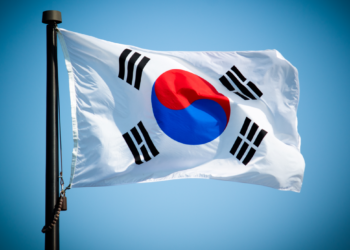Former Google CEO Eric Schmidt has raised alarm over the potential dangers of artificial intelligence (AI) falling into the hands of terrorists or rogue states, urging governments to exercise stricter oversight over private technology companies.
Schmidt in an interview with the BBC, emphasized that his primary concerns about AI revolve around “extreme risks” rather than the commonly discussed issues.
He specifically pointed to nations like North Korea, Iran, and Russia as potential actors with malicious intentions.
The fears
Highlighting further concerns over the potential use of the technology for attacks, the former Google CEO said:
“The real fears that I have are not the ones that most people talk about AI; I talk about extreme risk.”
- He warned that AI could be exploited to develop biological weapons or other harmful technologies, drawing parallels to the “Osama Bin Laden scenario,” where evil individuals could misuse advanced tools to harm innocent people.
- Schmidt, who held leadership roles at Google from 2001 to 2017, stressed the need for governments to closely monitor and regulate AI development, which is currently being driven by private companies.
“It’s really important that governments understand what we’re doing and keep their eye on us,” he stated.
Paris AI summit
His remarks came on the heels of a two-day AI summit in Paris, where the UK and the U.S. notably declined to sign a joint communique on the future of AI.
The declaration, titled “Inclusive and Sustainable Artificial Intelligence for People and Planet,” was endorsed by 57 countries, including India, China, the Vatican, the European Union, and the African Union Commission.
The UK government explained its decision not to support the communique, citing a lack of “practical clarity” on “global governance” and insufficient attention to critical issues such as national safety.
When questioned on Sky News about whether the UK’s stance was influenced by alignment with the new U.S. administration, Communities Minister Alex Norris denied the claim.
“No, that’s not how we make decisions. We make decisions based on what’s best for the British people. That’s what we’ve done in this situation, as we would do in any situation, global or domestic,” he said.
What you should know
Schmidt’s warnings highlight the growing concerns about the dual-use nature of AI, where the same technology driving innovation and progress could also be weaponized by bad actors.
This also signals a caution for Nigeria which is currently pushing to expand AI skills with support from global organisations like Google.
On Wednesday, Nairametrics reported that the CEO of Google, Sundar Pichai met with Nigeria’s President Bola Tinubu in Paris, where both leaders discussed a partnership to expand AI skills in Nigeria.
- Recall that the Ministry of Communications, Innovation, and Digital Economy recently released the country’s National Artificial Intelligence Strategy document, which is currently being reviewed by MDAs, following which it would be adopted as a national policy to guide all government efforts in Al.
- The government has also formed the Al Collective which will collaborate on research, projects of interest, hackathons, and seminars to develop an inclusive approach to Nigeria’s AI initiatives.
- Aside from the AI Strategy, the Nigerian government recently launched its Large Language Model, which is expected to position the country as an AI leader in Africa.


















